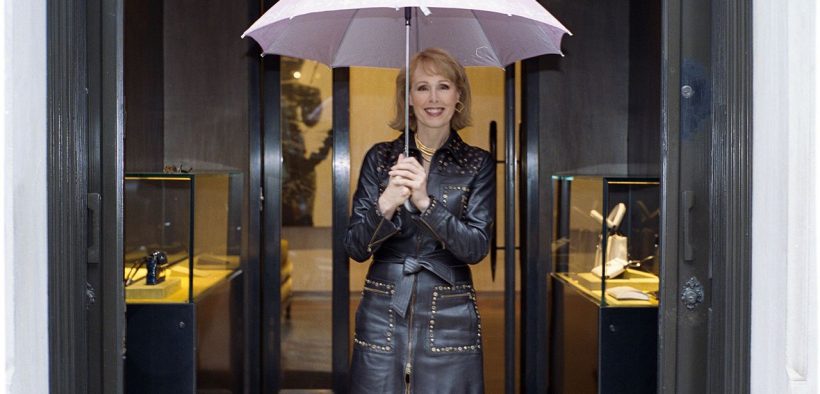Two Women Corroborate E. Jean Carroll’s Rape Accusation Against Trump

“It has felt impossible, in the Trump era, to hope even for a second that our governing systems will operate on any standard of morality.”
Two women stepped forward to corroborate author E. Jean Carroll’s rape accusations against President Trump on Thursday, the twenty-second woman to accuse the president of sexual misconduct. Despite the seriousness of a rape allegation against the leader of the United States, the story was not a front page story in the nation’s most prominent newspapers, including the New York Times, the Washington Post, the Wall Street Journal, the Chicago Tribune, and others.
The Accusation
In an excerpt from her upcoming memoir published Friday for New York Magazine, Carroll accused Trump of assaulting her in a Bergdorf Goodman store in Manhattan in late 1995 or early 1996. Carroll alleges that Trump assaulted her in a changing room after the two ran into each other while shopping. The author and columnist says Trump asked for advice about lingerie and jokingly asked her to model it for him, then lunged at her in a dressing room and forcibly penetrated her before she was able to escape.
Carroll has been a columnist for Elle since 1993 and previously wrote for “Saturday Night Live.” The prominent writer also accused Les Moonves, the former CEO of CBS, of groping her during an interview for a 1997 Esquire story. Moonves, who resigned from CBS in 2018 amid multiple allegations of sexual harassment and abuse, has denied Carroll’s accusation.
Even though a photo of Trump and Carroll talking at a party has resurfaced, the president claims to have never met her, and dismissed the allegations with the excuse that “she’s not my type.” Trump appears in the published photo with Carroll alongside his ex-wife Ivana Trump, who has also accused him of rape.
The two women who came forward to corroborate Ms. Carroll’s allegation, Carol Martin and Lisa Birnbach, disagreed on whether to call the police at the time. Ms. Birnbach told the New York Times that Carroll called her immediately after the episode, and she urged her to contact the police, but Carroll refused, believing that she was responsible for what happened. Nancy Hass, a writer with the Times’ T-Magazine, described Carroll as the “anti-victim.”
Meanwhile, Ms. Martin warned Carroll against contacting the police, arguing that Trump was a powerful man who could retaliate with numerous lawyers. “I said: Don’t tell anybody. I wouldn’t tell anybody this,” Martin told the Times.
“This is not about what Congress would do, this is about what the president’s own party would do.”
Weeks before being elected president, a recording of Trump claiming to use his celebrity status to forcibly kiss women and “grab them by the pussy,” was leaked by the Washington Post. But despite his own remarks and the allegations of over twenty women, the president has avoided any punitive response from lawmakers and only downplayed criticism from major media outlets.
The New York Post, for example, ran an article about the accusation on Friday before pulling it hours later. CNN Business alleges the article’s removal came at the request of the newspaper’s editor-in-chief Col Allan, who is a Trump supporter.
Several prominent congress members said that while Carroll’s allegations were credible, they were too busy with urgent threats like war with Iran and the humanitarian crisis at the southern border to give them attention.
“I don’t know the person — it doesn’t matter if I did or not. I respect that, but I don’t know what Congress’s role would be in this,” House Speaker Pelosi said on Thursday, in response to a question about a potential congressional investigation into Carroll’s accusation. “But in any of these things, this is not about what Congress would do, this is about what the president’s own party would do. You’d really have to ask them.”
“It’s been well established that the president is inappropriate with women,” Rep. Karen Bass (D-CA), the chair of the Congressional Black Caucus, told the Daily Beast. “We know this. I think there’s a lot of other things that are going on that are equally important, and to me, to focus on this right now would be a diversion.”
Critics argue the muted response to E. Jean Carroll’s allegations represents the public’s numbing to the crimes and ethical misconduct of a president who has a demonstrable history of pathological lying. As the New Yorker’s Jia Tolentino writes:
“It has felt impossible, in the Trump era, to hope even for a second that our governing systems will operate on any standard of morality. What we have instead is a standard of consistency. If the president had ever convincingly espoused ideas of respect for people who are not like him, or of equal rights for women, it’s possible that he would be held accountable for his actions. Instead, he promised mass campaigns of cruelty against undocumented immigrants, and he is delivering.
He said that he grabbed women by the pussy, and many women- twenty-two, so far- explained that, yes, he did that, or something like it, to them. Carroll’s essay- exceptional, devastating, decades in the making- has made me consider how hard it is to understand right away that you’ve been exhausted into submission, especially when submission and endurance feel inextricable. It’s reminded me of how high I’ve let my own hideosity bar get lately, and also of the fact that no one can lower it again but me.”
Beyond public desensitization to Trump’s misconduct, other critics suggest the lack of media interest in the story reflects deeper structural misogyny in American culture. Many of the initial media headlines featured titles that led with Trump’s denial of accusations, a practice that has been criticized for alluding to the president’s innocence despite his frequent dishonesty and numerous allegations.













